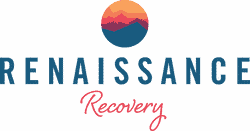Effects of Prescription Drug Abuse
Understanding prescription drug abuse effects
The effects of prescription drug abuse can impact individuals from all walks of life, creating long-term health issues and negatively impacting the lives of those struggling with addiction.
While prescription drugs can be a life-saving intervention for health issues upon recommendation by a doctor, these drugs are not intended for recreational purposes and can have uncomfortable and even fatal effects, especially when taken in large quantities or combined with other substances like alcohol.
If you or a loved one are struggling with the effects of prescription drug abuse, it’s important to reach out for help from a medical facility, prescription drug rehab, or addiction counselor as soon as possible.
Read on to learn more about the short- and long-term effects of prescription drugs.

By: Renaissance Recovery
Clinically Reviewed by: Diana Vo, LMFT
Last Updated:
03/24/2024
Long-Term Effects of Prescription Drugs
The long term effects of prescription drugs can vary widely from person to person depending on length of use, type of drug used, and existing mental or physical health issues. For example the side effects of Adderall will be much different than the effects of Lexapro.
However, the main long term effects of prescription drug abuse are:
Cardiovascular disease
Strokes
Increased risk of cancer
HIV/AIDS
Hepatitis B and C
Lung disease
Mental health disorders
These effects are preventable if addiction is treated in time. It’s always advisable to reach out for help and get treatment if you’re struggling with addiction.

The Effects of Prescription Drugs
Generally speaking, prescription drugs are medications that are legitimately prescribed by doctors for reasons such as: to treat pain, to treat anxiety, and to treat a myriad of other serious health problems and issues. Many people assume that since they’re legal when prescribed by a doctor, they must be safer than illegal drugs.
While these substances can be incredibly effective under medically supervised care, the effects of prescription drug abuse can be uncomfortable and difficult to deal with, especially in cases of illicit, long-term, or heavy usage.
When abused, prescription drugs can be just as dangerous, and as deadly as illegal drugs and cause drug dependence and eventually addiction. In fact, in recent years, prescription drug abuse has resulted in more deaths than cocaine and heroin combined. Luckily, there are addiction treatment programs, like our Florida or California rehabs, that can help address the consequences of prescription drug abuse and help you stop taking recreational drugs.
The most commonly prescription drug abuse types fall into three categories: Painkillers, Depressants, and Stimulants. The long-term effects of abusing prescription drugs can be dangerous and even deadly, and should be treated as soon as possible to prevent symptoms from getting worse. Reaching out to an addiction treatment center or addiction counselor can be a life-saving decision for many who struggle with prescription drug abuse effects.

Effects of Painkillers
As many know, painkillers usually contain opioids that are naturally derived from poppy flowers or are lab-made using a semi-synthetic substitute. These drugs attach to particular areas of the brain called “opioid receptors.”
When a person ingests this prescription medication , it can affect the way information pathways in the brain. In this case, the brain can no longer interpret pain signals as being painful. These are the same receptors that heroin uses to bind to inside the brain.
Unfortunately, painkiller drug abuse or even prescription drug misuse has become a serious problem. The most commonly abused brand-name painkillers include Vicodin, Oxycodone, OxyContin, and Percocet. Codeine, an opioid painkiller often found in prescription cough syrup, is also commonly abused.
Short- and Long-Term Effects of Painkillers

Fight Back Against Prescription Drug Abuse
Get evidence-based treatment to overcome prescription drug addiction at Renaissance Recovery. Call our team now to learn more about the process.

Long-Term Effects of Depressants
The abuse of depressants (AKA: Downers, downs, barbs, benzos, reds, red birds, phennies, tooies, yellows, yellow jackets, candy, sleeping pills, tranks, xanies) is a widespread problem around the world and they have some of the most dangerous long-term effects of prescription drug abuse compared to the other forms of prescription drugs. The effects of depressants are powerful and addictive.
Without a doctor’s prescription and supervision, short and long term use of depressants can lead to dangerous side effects, including accidental overdose. Combining them with alcohol or other drugs increases the health risks and risk factors of death from overdose.
Those who suffer from long-term prescription drug addiction will likely need rehab or detox followed by adjustment in a sober living home.
Long-Term Effects
Depressants are a highly addictive prescription drug, and when chronic users or abusers stop taking them, they can experience severe withdrawal symptoms, including:
- anxiety
- insomnia
- and muscle tremors.
In fact, going “cold turkey” off of some depressants can have serious consequences, like:
- seizures,
- convulsions,
- and in rare instances, death.
These withdrawal symptoms are best experienced under the care of medical professionals in a professional detox or rehab center for safety and the best success rates.
What Are Depressants?
As the name implies, doctors prescribe depressants to treat a variety of mental health issues and conditions, mostly depression issues, mood problems, anxiety, panic attacks, and sleep disorders.
Depressants can be divided into three groups. The groups are based on their chemistry and the specific mental health condition or problem they help address.
Depressant List
These groups include:
-
Barbiturates, which are often prescribed to promote sleep;
-
Benzodiazepines, like Valium and Xanax, which are prescribed to relieve anxiety;
-
And the new (non-benzodiazepines) sleep medications, like Ambien and Lunesta, are commonly used to treat sleeping disorders.
The Risks
Teens are especially susceptible to the side effects of depressants as prescription drug abuse affects them on an increasing level each year in the US. In teens, depressants can cause depression, confusion, exhaustion, and irritability. Part of this sensitivity to the drug in teens is due to naturally occurring hormonal imbalances or changes that are common to this age group.
Because depressants work by slowing down the brain’s activity, they can diminish heartbeat, blood pressure and respiration to dangerously low levels. This is especially true when depressants are combined with alcohol or OTC medications. This is dangerous a prescription drugs combination that can even lead to death.
Depressants: The Bottom Line
Depressant prescription medications can make you depressed, confused, and irritable. And prescription drug addiction in the form of depressants increases your chances of more dangerous outcomes and withdrawal symptoms like overdose, slowed breathing and heart rate, and even death.


Prescription Drugs Short-Term Effects
Prescription stimulants affect the brain through a slow and steady release of two neurotransmitters—dopamine and norepinephrine. When prescribed and taken correctly, under medical supervision, this prescription drug can help treat a few health conditions and mental health disorders, including attention-deficit hyperactivity disorder (ADHD), narcolepsy and, occasionally, depression.
In treating ADHD, prescription medications can help regulate and normalize the dopamine and norepinephrine function in the brain, so a patient with this condition can focus better and pay more attention. Common brand-name prescription stimulants include Adderall, Ritalin, Dexedrine, and Benzedrine.
Prescription Drugs: The Bottom Line
Some people mistakenly believe that prescription stimulants can give them energy, help them focus, and help them perform better in school. If you haven’t been diagnosed with a condition that requires taking these prescription drugs, and aren’t taking them under a doctor’s supervision, the long-term effects of prescription drug abuse can be not only dangerous but deadly to your physical and mental health. These negative consequences like addiction and becoming physically dependent on drugs can be avoided with sobriety and the proper treatments.

Get Treatment for Prescription Drug Abuse at Renaissance Recovery
Prescription drug addiction treatment is crucial to anyone struggling with dependence on these substances.
At Renaissance Recovery, we treat individuals with drug or alcohol addiction in order to help them achieve sobriety from substance abuse. We offer evidence-based treatments on multiple levels of care to help treat addiction on an individualized case-by-case basis. In our care, we take into account any physical and mental health disorders that may be co-occurring with addiction to ensure the best possible recovery experience.
If you or a loved one are suffering from a serious drug use or alcohol addiction or mental health disorder, contact us today.

